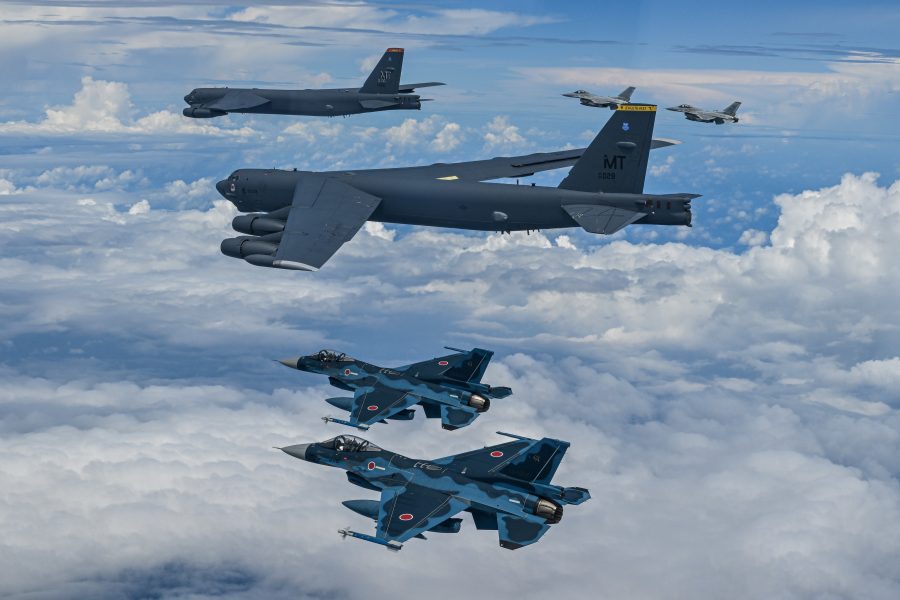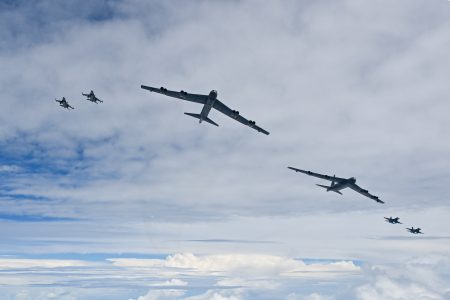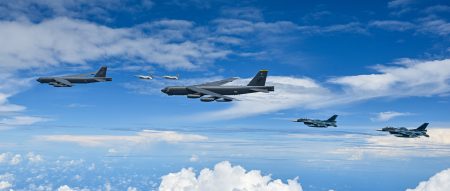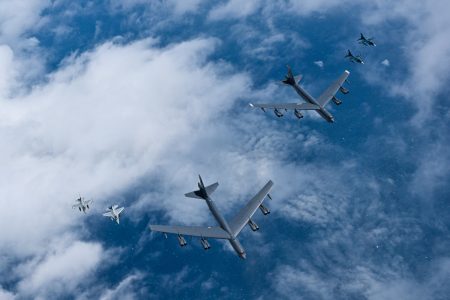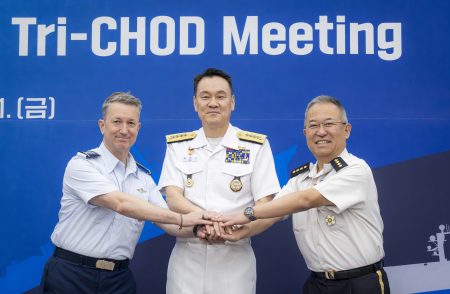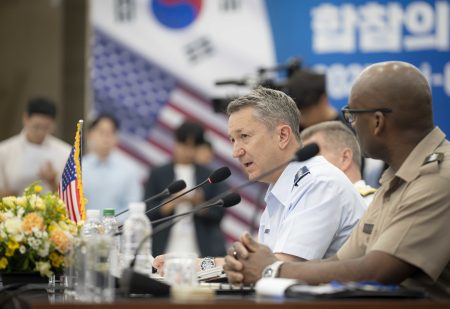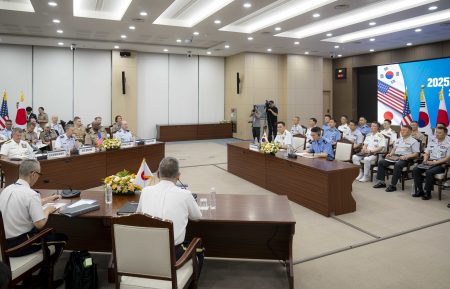The U.S., South Korea, and Japan conducted a rare trilateral flight with two U.S. B-52H Stratofortress bombers escorted by two Japan Air Self-Defense Force F-2 fighters and two ROK Air Force KF-16s, both countries’ respective variants of the F-16, on July 11. That same weekend, the top military officers of the three nations met in an annual “Tri-CHOD” meeting in Seoul.
“The flight continues to demonstrate and train the collective ability to immediately respond to regional security challenges,” U.S. Indo-Pacific Command said in a statement. “Our steadfast commitment fosters trust, strengthens cooperation, and reinforces the collective will and ability to maintain security and stability in the Indo-Pacific.”
The event is the third trilateral flight of 2025 between the three nations, including a B-1B Lancer bomber escort flight in January.
The B-52H Stratofortress bombers that participated in the mission are deployed to Anderson Air Force Base, Guam, from their home at Minot Air Force Base, N.D., on a bomber task force deployment. The deployment is occurring during the Resolute Force Pacific exercise, which is scheduled to involve more than 300 aircraft.
The same day, Air Force Gen. Dan Caine, the Chairman of the Joint Chiefs of Staff, held a trilateral meeting with South Korean Chairman of the Joint Chiefs of Staff Adm. Kim Myung-soo and Japan’s Chief of Staff for Joint Staff Gen. Yoshida Yoshihide. Caine and the U.S. delegation also had bilateral meetings with both countries.
Both the B-52 flight and the meetings underscore how China’s military buildup and aggressive posture in the Pacific have changed regional dynamics. South Korea and Japan have historically had an acrimonious relationship but have increasingly participated in military drills together and with the U.S., their main ally.
“The three chiefs of defense recognized the importance of close trilateral cooperation in addressing security challenges on the Korean Peninsula, in the Indo-Pacific, and beyond,” a joint declaration from the meeting stated. “The three defense chiefs reaffirmed that trilateral security cooperation has played a key role in promoting peace and prosperity on the Korean Peninsula and in the Indo-Pacific. They focused on various ways to deepen their cooperation to ensure peace and stability in the region.”
China was not singled out by name, but the joint statement took particular aim at the Democratic People’s Republic of Korea, or DPRK, as North Korea is formally known. North Korea has moved to assist Russia in its war in Ukraine by deploying troops and supplying missiles as it continues its nuclear weapons program.
“The defense chiefs condemned the DPRK’s continued development of unlawful nuclear and ballistic missile programs and agreed to continue coordination toward the complete denuclearization of the DPRK in accordance with relevant United Nations Security Council Resolutions (UNSCRs),” the joint statement read. “They also discussed the deployment of the DPRK’s troops to Russia, as well as the potential transfer of military technology from Russia to the DPRK. They urged the DPRK to immediately cease all unlawful activities to destabilize the Korean Peninsula, the Indo-Pacific, and beyond, and pledged to continue working together to respond to the DPRK’s threats.”
